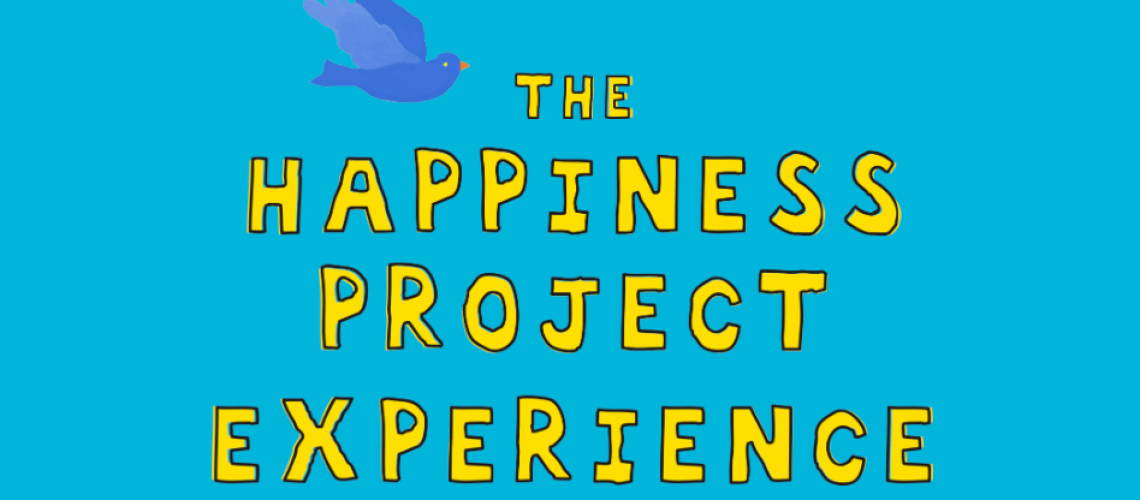Or, Why I Spent a Year Trying to Sing in the Morning, Clean My Closets, Fight Right, Read Aristotle, and Generally Have More Fun
The Happiness Project—an account of the year Rubin spent test-driving the wisdom of the ages, current scientific studies, and lessons from popular culture about how to be happier.
It is is an approach to life and Rubin shows how you can be happier with small, actionable steps accessible to everyone.
Happiness is huge and profound, but it is also the mass of little things.
Five Half-Truths About Happiness
Gretchen Rubin
Key Takeaways
1. Hell is other people. Heaven is other people, too
Ancient philosophers and contemporary scientist agree that a key and maybe the key to happiness is strong relationships with other people. To be happy, we need to have long-term intimate relationships, we need to feel connected, we need to belong, get support, and just as important, give support.
- Just show up 80% of relationships is showing up and making the effort. One thing that is very effective is to join a group, it strengthens relationships.
- Do something kind for someone else. Do good, feel good really works. The best way to make yourself happy is to make other people happy.
2. Happiness is all in your head, but your body also matters
Your physical experience is always going to color your emotional experience. One of the things to think about is energy. Energy is tied to a sense of happiness. Start with the basics and get enough sleep. Be active- you don’t have to train for a marathon, even just get out and walk for 10-15 minutes. Exercise calms you down and also energizes you.
- What if you need a quick jolt of happiness and energy? Jump up and down a few times! It’s light-hearted, energetic, childlike, and may be goofy, but you will get that fix of cheer and energy.
3. A messy kitchen is too insignificant to matter for my happiness
Something like a crowded coat closet or overflowing inbox is trivial. Outer order contributes to inner calm more than it should. There’s something about getting control over the stuff of life that makes you feel more in control of your life generally. If this is an illusion, it’s a healthy illusion.
- One-Minute Rule if there is something you can do in less than a minute, do it. (hang up your coat, put shoes away, wipe counter down) This keeps the scum from accumulating on the surface of life.
- Make Your Bed something about making your bed first thing in the morning. It’s manageable, realistic and sets a tone of “wins” for the day.
4. Happiness Should Make Me Feel Happy
Researchers say that novelty and challenge, or growth, is a key element to happiness. Trying a new activity for the first time, or going to a new place, meet someone new, learn something new, fix something, help someone.
- Growth also brings with it feelings of fear, anxiety, and frustration. To live lives that reflect our values we often make choices that don’t make us feel happy, and yet they do make us feel happy.
5. One of the best ways to make yourself happy is to make other people happy
One of the best ways to make other people happy is to be happy yourself. Happy people help make people happy.
- Many people are concerned about the aim of wishing to be happier because they worry that it is selfish. 1. I have all the elements of a happy life. If I’m not happy or I want to be happier I must be a spoiled brat. 2. In a world so full of suffering, it’s not morally appropriate to seek to be happier.
- Studies show happy people are more interested in the problems of people around them and the pain in the world.
- Happiness does not make people want to drink daiquiris on the beach, it makes them want to volunteer for organizations that distribute malaria nets.
- Happy people are more altruistic. They volunteer more, give away more money, and more likely to help out if they see someone needs a hand. They have stronger relationships with their family, friends, and colleagues.
- When we’re unhappy, we tend to be isolated, defensive and preoccupied with our own problems.
- When we’re happy, we have the emotional wherewithal to turn outwards and to think about other people and the problems of the world.
If it is selfish to want to be happier, we should be selfish, if only for selfless reasons. And we should be selfless for only selfish reasons.
Negative emotions like loneliness, envy, and guilt have an important role to play in a happy life. They're big, flashing signs that something needs to change.


